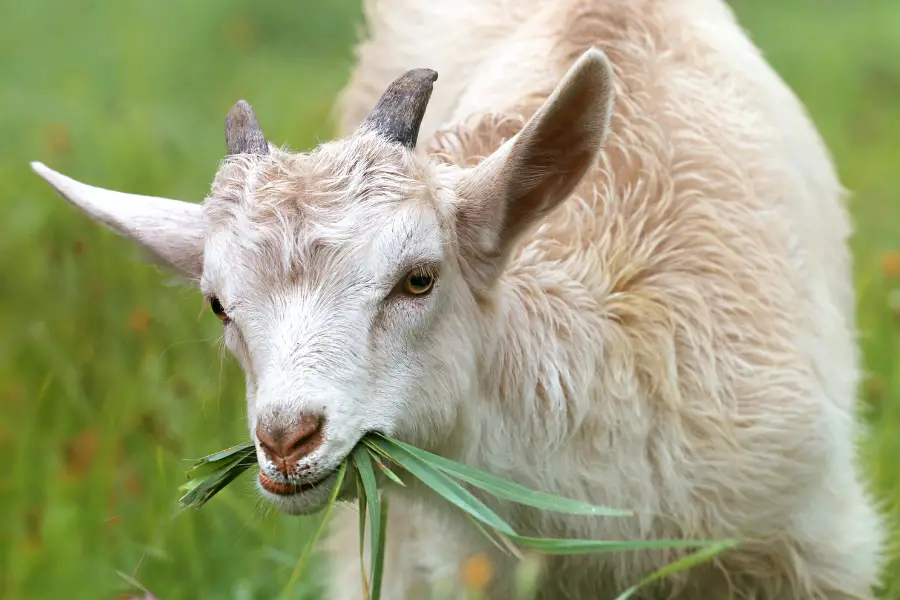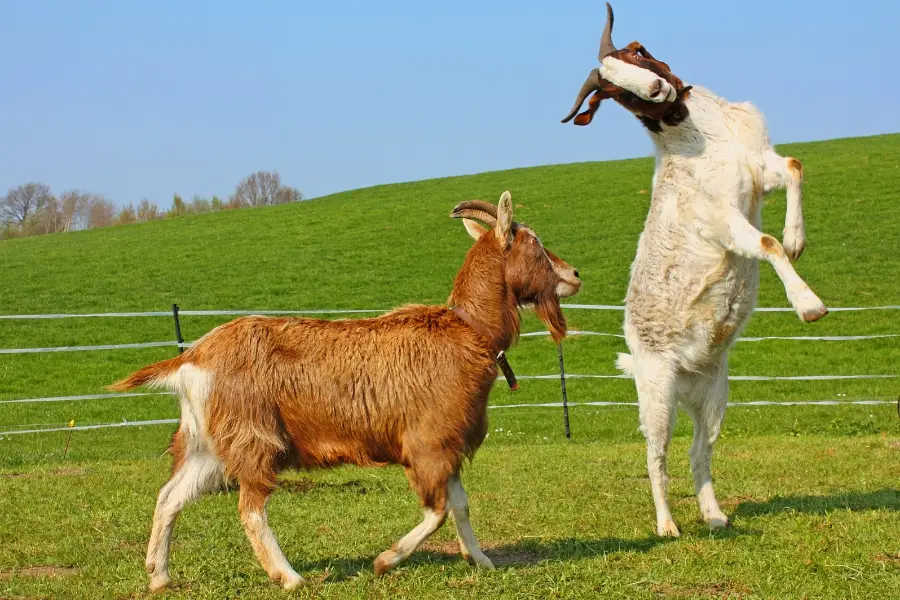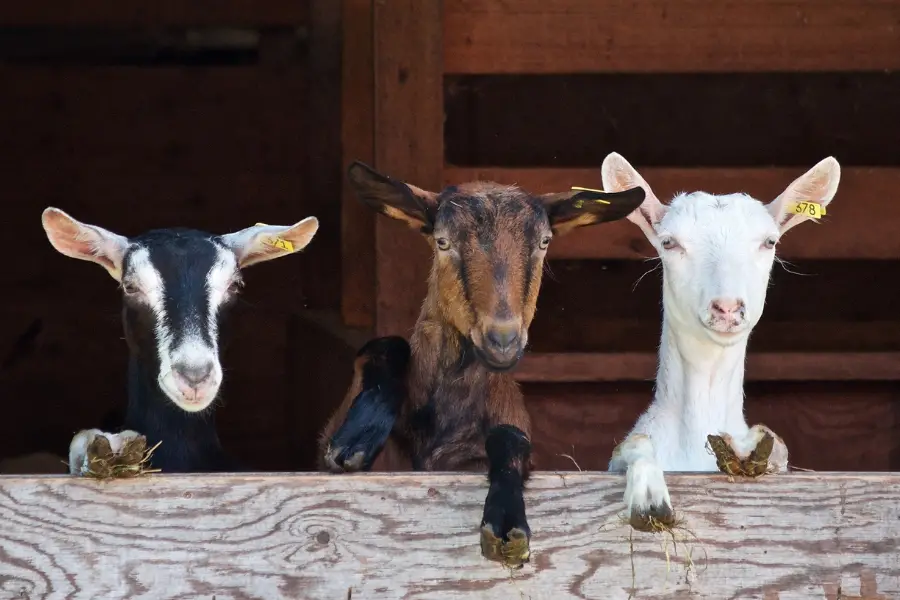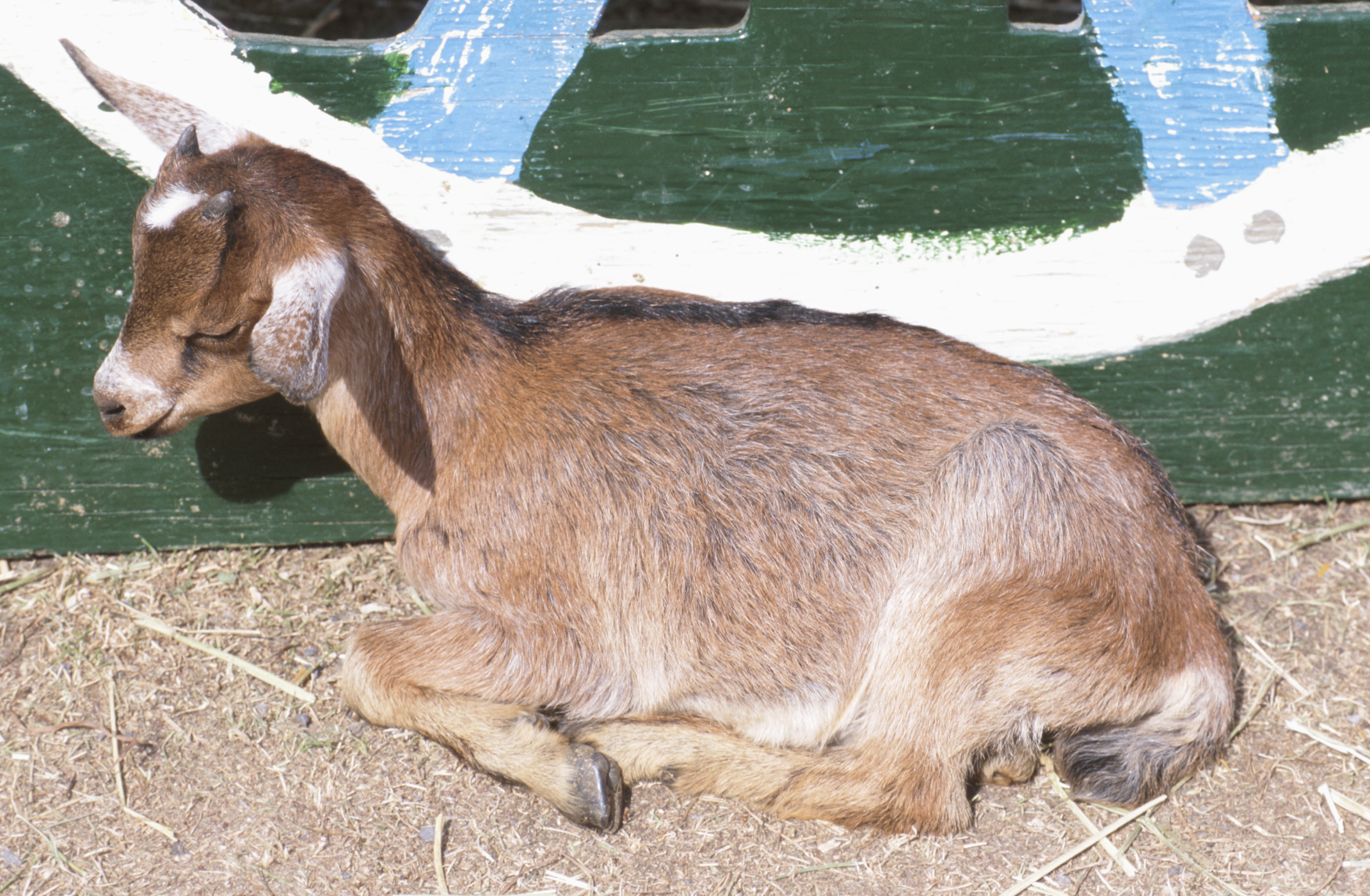
Scours are the increased fluidity, frequency, and excretion volume of the faeces. The scours may consist of mucous or the blood in it and have a bad smell. Scours may vary in colour and consistency.
They range from white colour to the brownish colour. However, it is not possible to know the cause of the scours by just looking at the colour of the faeces. Scours in goats can cause depression, dehydration, weakness, loss of appetite, and even death. There are several causes of scours in goats.
Table of contents
Goat Scours Causes
E. COLI
One of the common cause of scours in goat is E. coli. It is a bacteria that is opportunistic and linked to poor sanitation and other environmental conditions. This bacterial disease is more common in young goats of less than ten days. In this disease, the young ones drool more saliva and have a cold mouth. This disease is also known as watery mouth disease.

SALMONELLA
Another bacterial disease that affects almost all the animal species, including the goats, is salmonella. This bacterial disease cause scours in animals of all ages. The young goats under the period of 7 days may die without any signs when affected by this bacterial disease.

However, goats older that are seven days may show the scour development. This bacterial disease can affect the pregnant goats too by developing scours in the last few months of pregnancy and may lead to abortion.
CLOSTRIDIUM PERFRINGINS
Clostridium is bacterial with four different types i.e., A, B, C, and D that affects the goat and lead to the occurrence of scours. Clostridium type D is a more common type of bacteria that affect the goats. Type D causes the neurological signs in goats along with the development of diarrhoea.
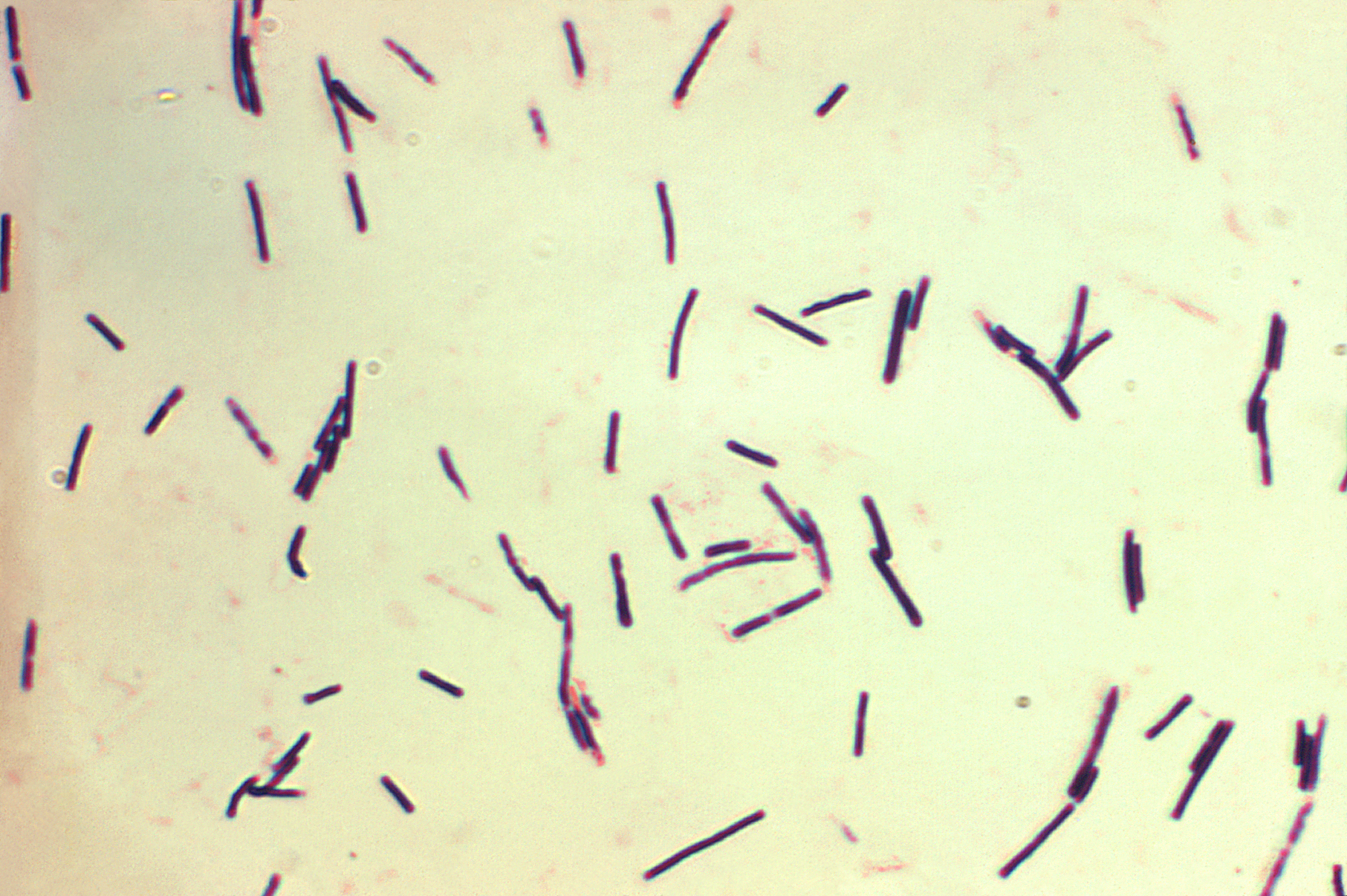
JOHNE’S DISEASE
This is a bacterial disease that causes diarrhoea in kids and adult goats. It is a contagious bacterial disease (that spread from one animal to other) of goats. This disease mostly affects the digestive tract of the goats and result in scours and rapid death.
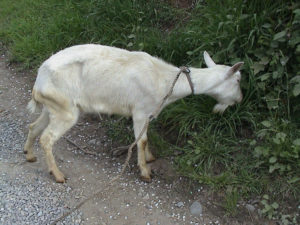
ROTAVIRUS
It is a viral ailment that affects the young goats while other animals, along with humans, are susceptible to this viral disease too. This viral disease causes the scours in the kids of age between 2-14 days. The young kids become stressed and dehydrated.
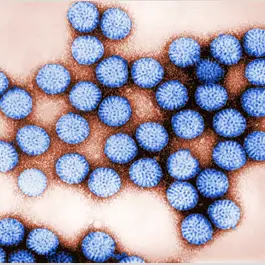
CRYPTOSPORIDIUM
It is a parasitic disease caused by Cryptosporidium parvum, which is a protozoan. This parasitic disease also affects the kids within the age of 5-10 days. The affected goats remain active and alert. The scours caused by this parasitic organism is usually very watery and yellowish.
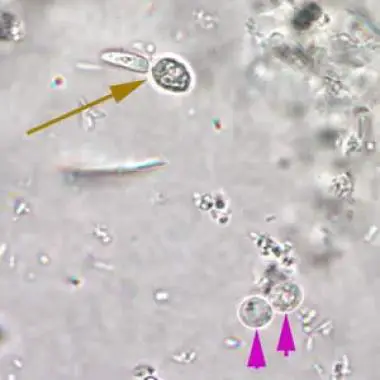
GIARDIA
It is a parasite that cause scours in the goats of any age. Diarrhoea or the scours caused by this parasite is usually transient. However, the animal having giardia continue to shed the cysts for a few weeks that can affect the other animals along with the humans.

COCCIDIOSIS
Coccidia is another common cause of the scours in goats. It affects the goats of any age; however, goats between the age of 1-4 months are more prone to the coccidia outbreak. Usually, goats get affected with coccidia when are in stress period like the stress of transportation, the pressure of weaning, any feed changes etc. The scours caused by coccidia may have mucous or blood in it and the diarrhoea is very watery.
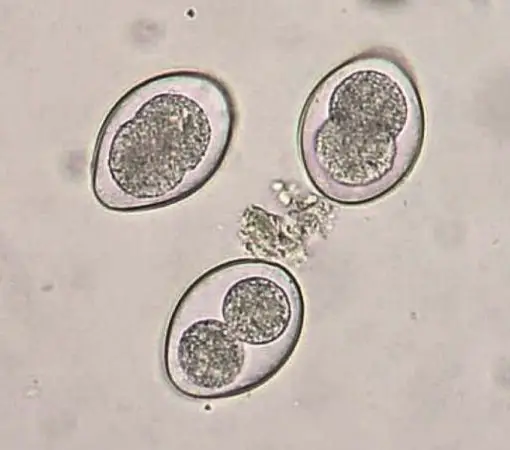
STOMACH WORM
Other parasitic causes of scours in goats include the stomach worm, also known as barber pole worm. This worm affects the goats of all ages, especially in a moist and warm climate. A higher worm load can lead to diarrhoea in goats.
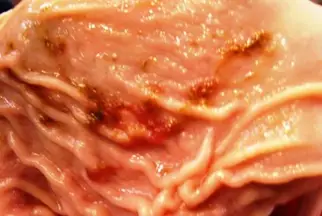
NUTRITIONAL
Infectious agents do not cause scours only like virus, bacteria or parasites. Scours can be the result of nutritional problems too. Dietary diarrhea is usually due to the poor quality of the feed, poor milk replacer, or overfeeding. Consumption of higher energy feed or lush pasture diets can also result in scours both in young and adult goats.
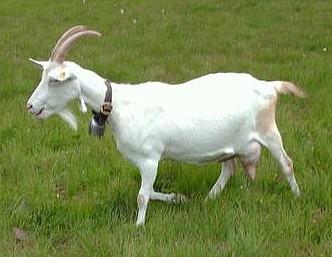
RUMEN ACIDOSIS
Acidosis is usually occurring due to overfeeding of grains or concentrates. This eating of concentrates and grains will lead to the alternation of the bacterial population and acidity in the rumen of the goats.
The increased acid in the rumen will result in the inflammation of the wall of the rumen. It will reduce the bacteria population that is essential for the digestion of fiber. The goat may have signs like bloat, loss of appetite, scours, and eventually death.
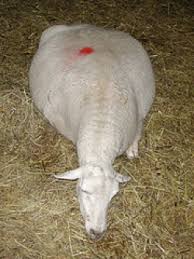
Is Goat Diarrhea Contagious?
As the reasons for the scour are variable and there are many causative agents for the scours in goats, some of the causes are contagious to other healthy animals as well as to humans too. The scours in goats is contagious if caused due to coccidia, salmonella, clostridium, stomach worms, rotavirus, and cryptosporidium.
Goat Diarrhea Treatment
Goat Diarrhea Home Remedies
With the onset of the scours, energy, fluids, and essential mineral leave the body of the goat. Therefore, it is very crucial to have a home treatment for the goat’s scours to minimise the loses of fluid, minerals from the body, so that goat’s body works properly. The primary home treatment for scouring includes water, light corn syrup, baking soda, and salt.
The ingredients of home remedy will provide energy, fluid, and electrolytes to the goat. This remedy for scours will help to prevent dehydration in goats. However, it is vital to mix the ingredients of home remedy cleanly and hygienically.
Initially, boil the water so the other ingredients can get mix readily within the water. Providing the goats suffering from scours in lesser amount but frequently will help the goats to recover from the dehydration and scour.
However, it is always essential to know the exact cause of the scour, before treating them with the home remedy. Sift through the environment of the goat. A small thing like something being chilled, or not provided regularly, or overfeeding can cause the scour in the goats.
Goat Medicine For Diarrhea
Scours or diarrhoea is not any disease but signs of another underlying disease. Before making the treatment for the scours, it is always better to diagnose the cause of the scour. Many types of scours are self-limiting (it cure itself).
For scours that require treatment, there are many anti-diarrheal medicines available that are effective in reducing the scours. Some commonly used drug against the diarrhoea is Pepto-Bismol (Bismusal), Kaolin-Pectin. These medicines relieve the irritated lining of the stomach and help to treat the non-infectious cause of the diarrhoea.
Treatment of the scours with the antibiotics is usually not useful when the cause of scouring is virus or protozoa. With the bacteria as a causative agent, antibiotics can play their role. Sulfa antibiotics are very efficient in recurring diarrhoea due to coccidia.
Treating Scours Video
References:


